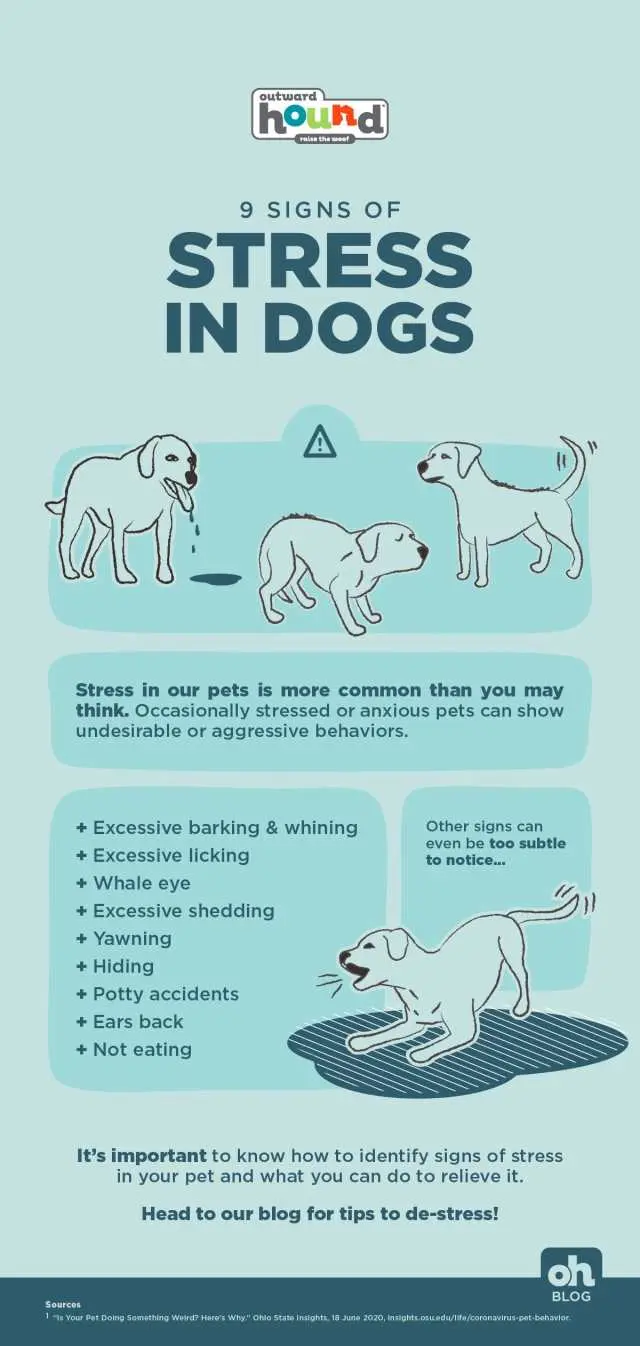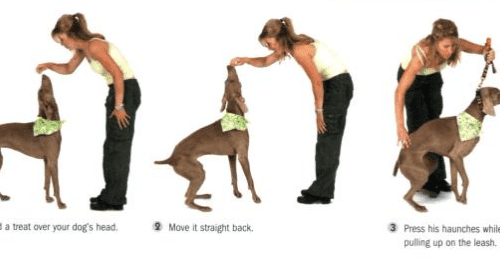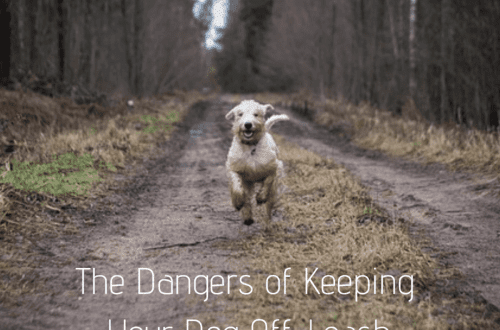
Dog stress. What to do?

Numerous studies have proven that dogs are prone to frequent stressful situations. They are very sensitive to the world around them. The reaction of the body to external stimuli is called a signal of reconciliation. Such signals include licking or, for example, yawning. Small disturbances do not cause significant harm to the body. But severe stress in a dog can not only provoke physical illnesses (for example, dermatitis), but also cause pet behavior disorders.
Signs of stress
Scientists have identified a number of signs that indicate stress in a dog. Symptoms can be expressed in different ways, the reaction is very individual and depends on the characteristics of the pet:
Nervousness. The dog fusses, is nervous, cannot calm down;
Anxiety. The actions of the dog are repeated: it cannot sit still, walks from corner to corner, cannot relax even in its place;
Excessive barking, hyperactivity. Sudden attacks of barking, as well as too active behavior of the pet, may indicate an increase in the level of stress hormones in his body.
Lethargy, apathy, refusal to eat. Depression, apathy and lethargy are common signs of animal health problems.
Combing, pulling, licking to bald spots.
Hard breath.
Disorders of the excretory system. Uncontrolled urination and diarrhea, discoloration of feces can indicate not only diseases of the gastrointestinal tract, but also the stress state of the body.
Increased salivation. Occurs quite often; although many breeds themselves are prone to increased salivation, this symptom should by no means be ignored.
Picking up garbage. If the dog does not respond to the “Fu” command, tries to eat edible and inedible finds on the street, you should pay attention to its psychological state.
When symptoms of stress appear in a pet, the first step is to determine the cause of its occurrence. But doing so is not always easy. For example, on a walk, a pet begins to behave restlessly surrounded by other dogs. Then the owner decides to limit this communication and brings the pet to an empty area. But even here he is unlikely to be able to completely relax: even the smells of other animals will cause stress in the dog. Treatment in this case should begin with limiting trips to the site and the gradual socialization of the pet.
What situations cause stress most often?
An appointment with a veterinarian;
Haircut, bathing, combing;
Public transport, car trips, air travel and other travel;
Celebration, noise, loud music, fireworks and thunder;
Lack or excess of communication with the owner;
Fighting with other dogs
Jealousy, the appearance of other animals or children in the house;
Change of owner;
Moving.
What to do?
Eliminate the cause of stress.
Of course, this applies to those situations where it is possible. But, for example, moving to a new house, changing the owner or the appearance of a child in the family cannot be settled in this way.
Work through fear with your pet.
If the cause of stress cannot be eliminated, it is necessary to work out this fear together with the pet. For example, if your dog is afraid of traveling by car, try to gradually accustom him to transport.
When moving into a new apartment, take a few things from the old house with you, including dog things: toys and a house. A familiar scent will help your pet feel safe.
It is recommended to accustom a dog to a haircut and bathing from childhood. If the pet is afraid of the typewriter, try cutting with scissors, this will avoid stressful situations.
If the pet is under severe stress, consultation with a cynologist or veterinarian is necessary. Do not delay visiting a specialist. A zoopsychologist or dog handler is able to help overcome a stressful situation. For example, the fear of interacting with other animals or the fear of being in public places can be overcome by socializing the pet.
Remember that in no case should you give a dog a sedative without consulting a specialist. Only a veterinarian will be able to prescribe treatment and prescribe appropriate medications.
December 26 2017
Updated: 19 May 2022





